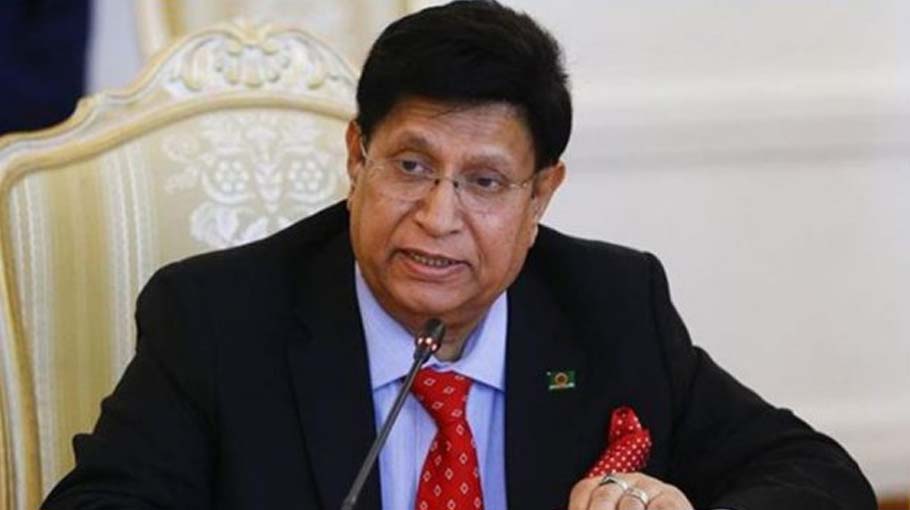Dhaka angry over US sanctions
600,000 go missing, 4,400 unidentified bodies found every year in USA-Who will impose sanctions against them?

A sharp reaction has been pronounced by the foreign ministry of Bangladesh in Dhaka against the sudden and designated sanctions against some officials of the country.
The US Ambassador to Bangladesh Earl R Miller was summoned to convey Dhaka’s ‘discontent’ over the designated sanctions imposed on Friday by the US Departments of Treasury.
Foreign Minister Dr AK Abdul Momen termed the US sanctions on RAB officials as ‘unfortunate’ and “not fact based”.
It is mentionable that more than 600,000 people go missing every year in the United States of America (USA) while around 4,400 unidentified bodies are recovered every year there, say reports. As per the reports, the law-enforcement agencies in the USA itself have no transparencies and accountabilities.
According to the National Missing and Unidentified Persons (Nam US), which is funded by the US Department of Justice, more than 600,000 people go missing every year in the United States of America (USA) while around 4,400 unidentified bodies are recovered every year.
The report also says that at present over 17,000 people remain missing in the USA while there are 13,000 bodies remain unidentified.
Dr AK Abdul Momen put emphasis on that point and said the government of Bangladesh remained committed to upholding the rule of law and human rights, and maintained a ‘zero tolerance’ approach to any wrongdoings or aberrations by its law enforcement agencies.
The Foreign Secretary regretted that the allegations made against RAB over certain specific incidents had been explained, along with information on the corresponding justice and accountability measures undertaken, to not just to the US Administration but also to a number of UN human rights mechanisms on multiple occasions.
“We expect more solid fact-based mature steps from a progressive country like the USA,” he told reporters after attending a programme at the Foreign Service Academy in the capital.
The Foreign Secretary of Bangladesh stated that the US decision appeared “to have been based more on unverified or unsubstantiated allegations of command responsibility” than on the facts involved in connection with certain specific incidents that had taken place at the local level and the decision was targeting the Bangladesh officials made in tandem with those concerning certain countries that stand alleged to have committed serious international crimes.
He flagged that human rights violations and abuses were reported to be committed by wayward elements within the law enforcement agencies in many countries, including in the US, but that would not justify singling out the high officials of any law enforcing agency for targeted sanctions.
Foreign Secretary Momen expressed Bangladesh’s disappointment that the decision was taken “unilaterally” by the US Administration without any prior consultation with the government of Bangladesh, the foreign ministry said.
He flagged that the issues that were cited for imposing the designated sanctions remained under active discussions, including under the framework of the regular institutional dialogues between the two sides, and that yet the US decision came without any prior intimation.
The Foreign Secretary regretted that the US decided to undermine an agency of the government that had been on the forefront of combating terrorism, drug trafficking and other heinous transnational crimes that were considered to be shared priorities with successive US administrations.
Earlier on Friday, the United States imposed sanctions on Benzir Ahmed, the current Inspector General of the Bangladesh Police and former Director General of Bangladesh’s Rapid Action Battalion (RAB) and six other individuals on the occasion of International Human Rights Day.
They were announced as part of a raft of new rights-abuse sanctions on senior officials and entities in eight countries, with targets ranging from a Chinese firm specializing in facial recognition technology to a giant cartoon studio in North Korea. The measure was partly supported by the UK and Canada, although not in the case of the Bangladeshi officials or RAB.
Home Minister Asaduzzaman Khan said every incident of HR violation is investigated properly in Bangladesh and legal action taken accordingly.
“If any incident of human rights violation is reported, investigations are carried out through magistrates. Legal action is taken here if any government agency violates human rights,” he said.
“The US has not imposed the sanctions neutrally. They did it based on exaggerated news. Maintaining law and order is a challenging task in Bangladesh,” he said.
“Drug peddlers use firearms for self-defence that leads to gunfights with the members of law enforcement agencies, causing casualties,” he added.
Foreign Secretary Momen underscored the need for pursuing the pathway of dialogue, engagement and collaboration, instead of resorting to ‘naming and shaming’ that has proven to be a self-defeating exercise.
He highlighted that the observance of the 50th anniversary of the diplomatic relations between the two friendly countries next year should open up further avenues to enhance the breadth and dimensions of the existing partnership.
The foreign ministry said Ambassador Miller took note of the concerns raised by the government of Bangladesh, and assured of conveying the same to his Capital.
He concurred that the excellent multifaceted relations between two countries could be further deepened through established consultation mechanisms and high-level visits.
Ambassador Miller further expressed the willingness of the US Government to remain closely engaged with the government of Bangladesh in the coming days on issues of mutual interest, the foreign ministry said in a statement.




